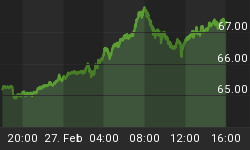What do you want to be when you grow up … a dentist, an engineer, or a “budtender”?
The cannabis industry is absorbing a significant part of the workforce, and if it wasn’t on the list of dream jobs before, there’s a reason it’s attracting more and more people.
An estimated 321,000 people now work in the legal cannabis industry in the U.S. That’s a 32% increase over last year, making it one of the fastest-growing sectors in the country.
The U.S. cannabis workforce now outnumbers dentists, paramedics and electrical engineers.
The marijuana industry is one of the very few sectors of the economy that has continued to grow amid the pandemic. As dispensaries and cultivation facilities were deemed as “essential,” the industry became a refuge for workers who had been laid off or furloughed.
Most of them came from the retail and restaurant industries, which are still struggling to get them back, even with adding various benefits upon the sign-up.
Even as the pandemic eased, cannabis jobs have continued to grow, adding nearly 80,000 jobs in 2020, more than double what it did the year before. Overall, the U.S. economy lost 22 million jobs in 2020, though it has regained three quarters of that so far this year.
Sales of legal cannabis grew nearly 60% to $19 billion last year, representing a 71% increase over 2019. Sales are expected to reach $35 billion by 2025, according to New Frontier Data.
Most U.S. states — 37 of them, plus the District of Columbia— now allow cannabis for medical us, with a growing number of them legalizing it altogether.
According to a new poll by Pew Research, some 90% of adult Americans currently favor legalizing marijuana, which is a record high.
To accommodate the growing industry and consumers, businesses in some states where recreational marijuana has been legalized are moving to ease drug testing requirements for jobs.
In June, Amazon announced that it would stop testing for cannabis metabolites as part of its drug screening program.
Earlier this year Atlanta, Georgia, Mayor Keisha Lance Bottoms issued an executive order suspending pre-employment drug screenings for public employees, saying that the testing requirements were “outdated” and calling them “costly barriers to onboarding new talent in the city of Atlanta”
There is a glitch in the system, though: The federal marijuana prohibition means that the U.S. Department of Labor can’t actually count these jobs. Instead, we have to rely on numbers from the Leafly Jobs Report.
However, the prohibition might come to an end soon.
In April, the U.S. House of Representatives passed SAFE Banking Act legislation that would allow banks to provide services to cannabis companies in states where it is legal.
Currently, due to federal restrictions, most federally regulated banks won’t service the industry, forcing cannabis companies to resort to cash-run operations.
Then, in June, Democrat leaders sponsored the Cannabis Administration and Opportunity Act, which would remove marijuana from the Controlled Substances Act (CSA) and allow states to determine their own cannabis laws.
Once the prohibition is over, it will also end some 1.5 million marijuana related arrests annually, where at least third it for nonviolent lower-level marijuana possession offenses.
















